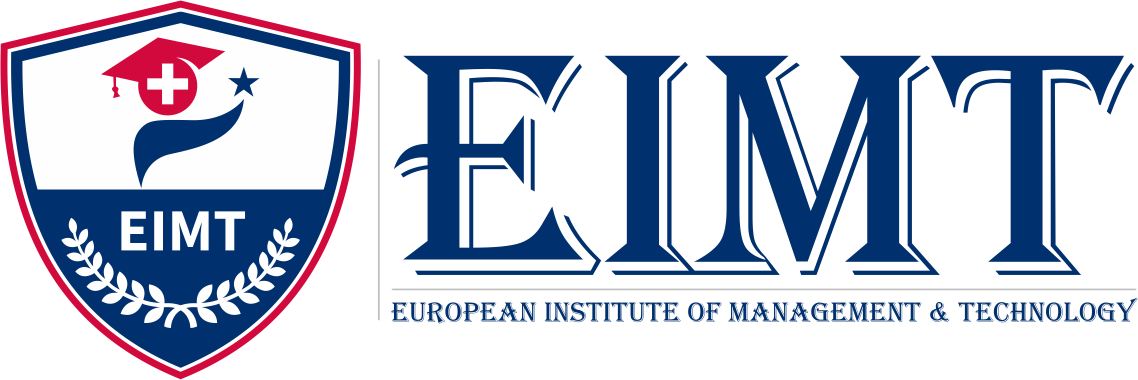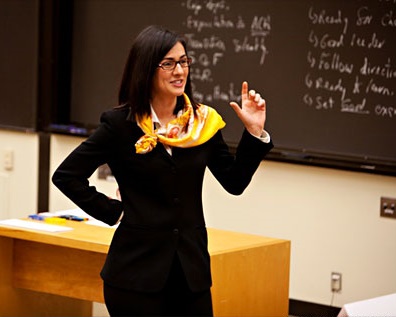
Master Of Education
- Home
- Master Of Educationn
Program Overview
EIMT’s Master of Education is designed for future academic, policy, and practical leaders in higher education (HE). It provides an important introduction to research, theory, and policy in this complex field, taking into account various national, international, and global perspectives.
Salient Features
-
24 Months online Program.
-
Specially Designed for Teachers.
-
International Networking Opportunities.
-
Highly Experienced Faculties.
-
Focused & Unique Curriculum.
-
Global Academic Support.
-
Get a holistic and strategic understanding of the education industry.
Achieve Your Dream
Master of Education
Program Key Learning Outcomes Majorly Focuses on
- Demonstrating a solid understanding of the basics of education.
- Show that you are capable of performing and assessing scholarly work in the field of education.
- Effectively communicate with a variety of constituencies during teaching and learning.
- Demonstrate your knowledge of cultural sensitivity and global education.
-
MASTER OF EDUCATION
Advance your learning with a Master of Education program. Build a solid foundation for your education while exploring current theories. Understand research strategies and principles for studying education while becoming an informed and critical educator.
Master of Education
- Eligibility: Bachelor's Degree
- Duration: 24 Months
- Enrollment: Throughout the Year
Important Information Regarding Master of Education Program
Program Delivery



Professional Professors
General Admission Requirements:
Candidates are eligible for admission by satisfying the following admissions criteria:-
A bachelor’s / Undergraduate degree.
-
Submission and evaluation of graduate school applications including; undergraduate academic transcripts, ID or passport copy, and resume.
-
Applicants for the Master of education program are exempted from an English exam provided they completed their schooling years and/or bachelor’s program at a recognized school where the medium of teaching is English.
Application Go Through:
Applications are only accepted online. Once the application form is received, our team looks after the past performance and future potential and will contact you accordingly.
What is Next?
The Curriculum
Modules covered during your coursework
-
Current Trends in Education
Introduction to graduate studies through a study of political, social, and economic forces that currently shape American education. Attention is given to educational history, reform and renewal, the role of the teacher, the challenges of diverse populations, family structures, technology, legal considerations, and pressure to reform education and professionalism in teaching.
-
Technology Leadership
This course explores the philosophical underpinnings of leadership perspectives that affect the successful application of instructional media and technology in the classroom. Students will study the integration of technology into educational settings, including creating and communicating common goals and understanding the nature of change in an information-rich society.
-
Curriculum & Instruction
The focus of this course is on exploring access, instruction, and curriculum development with regard to past, present and future strategies. Emphasis is placed on integrating theoretical and practical dimensions. Multiple conceptual frameworks for developing curriculum and reflective inquiry will be investigated.
-
Assessment for Intervention Specialist K-12
This course is designed to teach a practical, step-by-step approach in learning the complex procedures of the assessment process (ETR/IEP) and assessments (e.g. WISC-R) used to determine eligibility (IDEA, 2004). Demonstrate understanding of the assessment process according to the regulations of IDEA (2004) for eligibility, to determine services (IEP/ETR) and to create formative and summative assessments to inform instruction to achieve IEP goals and to analyze outcomes.
-
Content Area Reading & Writing: Instruction & Technology
This course examines principles, strategies and methodologies that are designed to improve student achievement in the content areas. Research, theory, and implications for instruction and technology will be examined and reviewed. Topics include purposes and types of reading; content reading learning design and delivery and methods of assessing reading strategies and skills in student-centered reading instruction.
-
Psychology of Learning
This course focuses on learning theories and current issues in the psychology of learning, the social and emotional growth and diverse needs of students, and guidance and counseling theories, strategies, and practices. Topics include research related to child development, best teaching practice, learning styles, theories of multiple intelligences and constructivism.
-
Collaboration: Leading & Facilitating Teacher Development
This course will aid in the understanding and knowledge of how one can use collaboration and facilitation skills with groups. This includes facilitation skills, consensus building and teambuilding strategies along with problem-solving skills that work in school settings.
-
Developing a Deeper Understanding of Leadership
This course will offer Teacher Leaders in public and private schools the opportunity to examine their own leadership styles and beliefs, while learning more about leadership in general, and school leadership, specifically.
-
Professional Ethics, Law & Teaching
This course provides an overview of the emergence of and justification for ethical issues in education. The course will compare and contrast the professional ethics of educators and other professions, begin to develop skills for thinking and writing critically about ethical claims related to the education profession, and encourage the students to think about how to maintain an ethical educational career and life.
-
Leading Instructional Learning
This course will examine curriculum leadership on a macro-scale, as well as examining how best to implement curricular change, work with curriculum teams or grade-level teams, plus leading horizontal and vertical teams for curriculum (mapping) coverages. This class will not look at a specific curriculum, but how to lead departments, grades, and schools in the implementation of a cohesive curriculum. It will also look at how to integrate inclusion and the special education challenges into the curriculum. -
Research Methods in Education
This course will focus on basic types of research conducted in education, including both quantitative and qualitative, as well as procedures for analyzing data for each type of research. Students will be able to identify and understand good research and to develop action research to move theory to practice.
-
Addressing Diversity in the Classroom
This course will focus on current issues related to all types of diversity in P–12 classrooms: educational exceptionalities, including giftedness, linguistic, cultural, ethnic, and economic diversity, and best practices to provide appropriate education to diverse learners.
-
School Business, Finance & Allocation of Resources
This course focuses on school finance in Ohio, offering a working knowledge at the district level. The course will also include the knowledge needed for budget, purchasing, and allocation of resources for principals to run buildings and departments. The combination of this course and the BASA School Finance I and II will offer a treasurer/business manager a complete view of school finance.
-
Seminar in Teaching and Learning
This course will be a topical seminar focused on current trends in teaching and learning, and will involve initial development and design of the Professional Teaching Portfolio.
-
Mentoring, Collaborating & Communication Through Technology
This course examines the effective use of technology as a tool to enhance mentoring, collaboration and communication in the educational setting. Topics include using advanced communications technology to solve communication problems, critically evaluate information and media messages, apply technology to meet the needs of diverse external audiences and work effectively in multicultural setting, and to use, organize, and manage research effectively to enhance learning.
-
Dissertation
A complete project report of selected area of research.
Frequently Asked Questions
-
English is not my first language; can I successfully complete this program?
While non-native English speakers have graduated from our programme in the past (and performed admirably), all of our courses are taught in English only, so your ability to interact with clients, professors, and peers in an effective manner through oral and written communication is crucial to your success.
-
What is Educational Leadership?
Educational leadership is a broad term that encompasses any education professionals who functions in a decision-making capacity to influence the curriculum or academics provided to an institution’s students, according to ASCD. Numerous positions within a school, district or campus can fall within the umbrella of this definition. Typically, those with leadership responsibilities hold advanced degrees in their field and are highly ranked among their colleagues.
-
What is Curriculum Development?
A critical component of any educational system is curriculum development, the process by which improvements are made to learning strategies based on the changing needs of society. In order to most effectively meet the needs of each generation of students, updates are necessary. Thus, there is an entire profession dedicated to the design and implementation of educational content. Curriculum development mainly consists of: Curriculum Development Curriculum Design Process Assessment and Evaluation in Curriculum Development .
-
What Careers are in Education Administration?
There is a wide selection of careers in education administration that will allow students to positively contribute to the education system. Here are four possible career paths with a degree in education administration. Assistant Principal Test Development Administrator Director For Curricular Programs Administrative Director .
-
What Administration Positions Are Available with a Master’s in Education?
If you’ve been teaching for a few years and want to pursue graduate studies, you may wish to investigate administration positions available with a Master’s in Education. Keep in mind that in order to compete for jobs in administration, you will need to pursue a master’s degree with a specialization in administration. Here’s a look at some of the jobs you could consider once you’ve completed your master’s program. Elementary School Principal Middle School Principal High School Principal
-
Why Get a Master’s in Education?
Obtaining a Master’s in Education, whether locally or online, helps if you are seeking positions with additional power and authority or if you are simply looking for positions that are more stable and also higher-paying. Working towards a Master’s in Education is ideal if you are interested in pursuing a career path within the educational field that is considered a specialty career or job opportunity, such as working with special education children or those who have communication difficulties.
-
On average, how many hours per week are spent in an online course?
In an online (Open Learning) course, expect to spend 3-4 hours per week on one course.
-
How long does it take to complete the Master of Education program?
This depends on how many courses you take per semester. You can complete it in as little as 18 months and self study/dissertation in the final semester.
-
Can I complete the Master of Education program fully online?
Yes. You will be able to take all your core courses and enough electives to complete your program in online mode.
